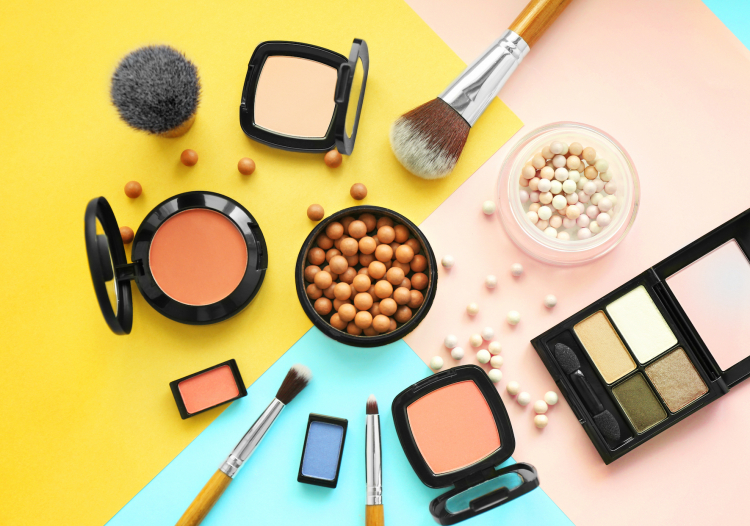If I Wear This Lipstick, Will I Become Rihanna?

Take a look at the list below. What do they have in common?
- Serena Williams – Tennis Player- Asutra – wellness products – 2018
- Gwen Stefani – Singer – P8nt – makeup products – 2018
- Little Mix – Girl Band – LMX - makeup products – 2018
- Lady Gaga – Singer – Haus – makeup products – 2018
- Kendall Jenner – Model – Moon – dental care products – 2019
- Paris Hilton – Socialite – Pro D.N.A – skincare products – 2019
- Victoria Beckman – Singer/Designer – Victoria Beckman – makeup and skincare– 2020
- Tati Westbrook – YouTuber – Tati Beauty – makeup and wellness - 2019
- Tracee Ellis Ross – Actress – Pattern – haircare products – 2019
- Selena Gomez – Singer/Actress – Rare Beauty – makeup products – 2020
- Millie Bobby Brown – Actress - Florence by Mills – makeup products – 2019
- Rihanna – Singer – Fenty Beauty – makeup products – 2017
- Jessica Alba – Actress – Honest Beauty – makeup and skincare products - 2011
- Miranda Kerr – Model – Kora Organics – skincare products - 2009
- Gwyneth Paltrow – Actress – Goop by Juice Beauty – skincare products – 2016
- Drew Barrymore – Actress – Flower Beauty – makeup products - 2012
- Kylie Jenner – Socialite – Kylie Cosmetics – makeup and skincare products – 2015
- Kim Kardashian – Socialite – KKW Beauty – makeup products - 2017
In the last few years, a majority of the most successful and hyped new beauty brands were launched by celebrities. Celebrity endorsed products has almost always been successful. From automobiles to cigarettes, kitchen utensils to fragrances, consumers look to celebrities as signal makers of good taste.
In fact, most shoppers are relieved when they relinquish the burden of decision-making with best-seller lists or stamp of approvals from doctors, agencies or their favorite celebrities. Americans, in particular, have a huge affinity for lists. It’s why magazines like Good Housekeeping or Consumer Reports are so successful in the US. Their main selling point is that they are saving time for consumers with their curated content.
When Elizabeth Taylor started the fragrance craze in the 1980s, not only did she create a new, extremely lucrative avenue for other celebrities like herself, but also a new movement for “indie brands” in a world dominated by huge corporations.
Fatigue from corporate marketing began in the 1980s, but really became visible in the 1990s. Counter-cultural ideas like grunge or hip-hop were expressions of the deep dissatisfactions young Americans had with their capitalist society. Traditional corporations no longer held the authority or authenticity to sell products like they once had. Instead, people looked to their idols for their shopping habits.
This phenomenon only grew with social media. With fewer barriers in place of privacy between consumers and their favorite celebrities, consumers now have instantaneous access to their preferred tastemakers and how they go about their day-to-day lives. Moreover, it was not enough to buy only sponsored products. Consumers also wanted to buy the look of their favorite celebrities. Celebrities received this message and started to curate their own brands of “must-have” products to their fans.
For example, Fenty Beauty is one of the most successful celebrity beauty brands to have ever been made because it was marketed to young Americans for indie inclusivity. Her website even states she launched this makeup line, starting with the foundation lineup, “so that people everywhere would be included." Although other brands such as Lancôme, Makeup Forever, Estée Lauder, MAC, or Bobbi Brown all had the “40 plus shades of foundation” in their product lineup before Fenty Beauty, Rihanna was banking on her authenticity to her fans to sell the idea that her company was the actual revolution for people of color in the beauty industry (Rihanna's slogan is "Beauty For All"). It worked because Rihanna sold about $600 million dollars’ worth of products within 15 months of launch.
With more and more cases of celebrity brands reaching massive success with the general public, it is only natural to start seeing more of them in the market. Even athletes or actresses with very little affiliation to makeup are jumping on the bandwagon, such as Millie Bobby Brown who was very au natural in Netflix’s hit show Stranger Things. When asked why she started a new beauty line, Florence, in a People’s Magazine interview, Millie said she did it in hopes that Gen Z will embrace their individualities. Ironic considering that she is marketing the same makeup products that will produce the same makeup look that the majority of other makeup brands are selling too.
As long as celebrities are seen as the gatekeepers of good taste, consumers are willing to buy almost anything their favorite celebrities curate—even if said celebrities may or may not have the professional knowledge or management skills needed to run a beauty company. However, I theorize this trend will end once major health scandals of these indie brands hit national news coverage. A few of them already did-- like the lawsuits against Wen by Chaz Dean, Devacurl, Honest Company by Jessica Alba, Peter Thomas Roth, etc. Only time will tell when the floodgates will open in this unregulated industry.







